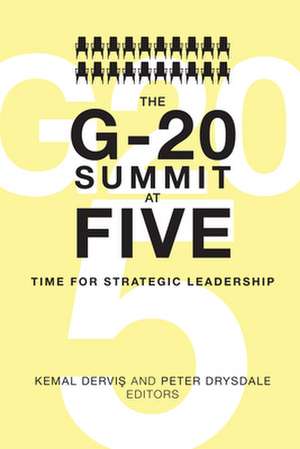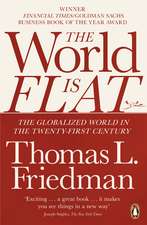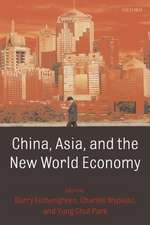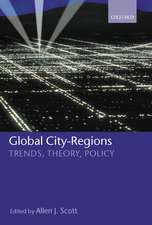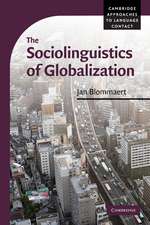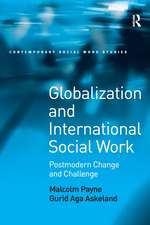The G-20 Summit at Five: Time for Strategic Leadership
Editat de Kemal Dervis, Peter Drysdaleen Limba Engleză Paperback – 18 iul 2014
Can the G-20 become a steering committee for the world's economy? Launched at a moment of panic triggered by the financial crisis in late 2008, the leaders' level G-20 is trying to evolve from crisis committee for the world economy to a real steering group facilitating international economic cooperation.
What can and should such a "steering committee" focus on? How important could the concrete gains from cooperation be? How much faster could world growth be? Is there sufficient legitimacy in the G-20 process? How does the G-20 relate to the IMF and the World Bank? How can Australia in 2015, and then Turkey in 2016, chair the process so as to encourage strategic leadership?
The East Asian Bureau of Economic Research in the Crawford School of Public Policy at the Australian National University and the Global Economy and Development program at the Brookings Institution joined forces in putting together this volume and asked opinion leaders and policymakers from G-20 countries to provide their independent perspectives.
Contributors include Colin Bradford (Brookings), Peter Drysdale (Australian National University), Kemal Dervis (Brookings), Andrew Elek (Australian National University), Ross Garnaut (University of Melbourne), Huang Yiping (China Center for Economic Research), Bruce Jones (Brookings), Muneesh Kapur (IMF), Homi Kharas (Brookings), Wonhyuk Lim (Korea Development Institute), Rakesh Mohan (IMF), David Nellor (consultant, Indonesia), Yoshio Okubo (Japan Securities Dealers Association), Mari Pangestu (Republic of Indonesia), Changyong Rhee (former Asian Development Bank), Alok Sheel (Government of India), Mahendra Siregar (Republic of Indonesia), Paola Subacchi (Chatham House, London), Carlos Vegh (Brookings), Guillermo Vuletin (Brookings), and Maria Monica Wihardja (World Bank).
What can and should such a "steering committee" focus on? How important could the concrete gains from cooperation be? How much faster could world growth be? Is there sufficient legitimacy in the G-20 process? How does the G-20 relate to the IMF and the World Bank? How can Australia in 2015, and then Turkey in 2016, chair the process so as to encourage strategic leadership?
The East Asian Bureau of Economic Research in the Crawford School of Public Policy at the Australian National University and the Global Economy and Development program at the Brookings Institution joined forces in putting together this volume and asked opinion leaders and policymakers from G-20 countries to provide their independent perspectives.
Contributors include Colin Bradford (Brookings), Peter Drysdale (Australian National University), Kemal Dervis (Brookings), Andrew Elek (Australian National University), Ross Garnaut (University of Melbourne), Huang Yiping (China Center for Economic Research), Bruce Jones (Brookings), Muneesh Kapur (IMF), Homi Kharas (Brookings), Wonhyuk Lim (Korea Development Institute), Rakesh Mohan (IMF), David Nellor (consultant, Indonesia), Yoshio Okubo (Japan Securities Dealers Association), Mari Pangestu (Republic of Indonesia), Changyong Rhee (former Asian Development Bank), Alok Sheel (Government of India), Mahendra Siregar (Republic of Indonesia), Paola Subacchi (Chatham House, London), Carlos Vegh (Brookings), Guillermo Vuletin (Brookings), and Maria Monica Wihardja (World Bank).
Preț: 269.17 lei
Nou
Puncte Express: 404
Preț estimativ în valută:
51.51€ • 53.89$ • 42.79£
51.51€ • 53.89$ • 42.79£
Carte tipărită la comandă
Livrare economică 02-16 aprilie
Preluare comenzi: 021 569.72.76
Specificații
ISBN-13: 9780815725916
ISBN-10: 0815725914
Pagini: 302
Ilustrații: black & white illustrations
Dimensiuni: 152 x 229 x 23 mm
Greutate: 0.43 kg
Ediția:New.
Editura: Brookings Institution Press
Colecția Brookings Institution Press
ISBN-10: 0815725914
Pagini: 302
Ilustrații: black & white illustrations
Dimensiuni: 152 x 229 x 23 mm
Greutate: 0.43 kg
Ediția:New.
Editura: Brookings Institution Press
Colecția Brookings Institution Press
Notă biografică
Kemal Dervis is vice president and director for Global Economy and Development at Brookings. He is the coeditor of Europe's Crisis, Europe's Future (Brookings, 2014) and coauthor of Inequality in America: Facts, Trends, and International Perspectives (Brookings, 2012).
Peter Drysdale is emeritus professor of economics at the Crawford School of Public Policy, Australian National University, head of the East Asian Bureau of Economic Research, and coeditor of East Asia Forum.
Peter Drysdale is emeritus professor of economics at the Crawford School of Public Policy, Australian National University, head of the East Asian Bureau of Economic Research, and coeditor of East Asia Forum.
Descriere
Can the G-20 become a steering committee for the world's economy? Launched at a moment of panic triggered by the financial crisis in late 2008, the leaders' level G-20 is trying to evolve from crisis committee for the world economy to a real steering group facilitating international economic cooperation.
What can and should such a "steering committee" focus on? How important could the concrete gains from cooperation be? How much faster could world growth be? Is there sufficient legitimacy in the G-20 process? How does the G-20 relate to the IMF and the World Bank? How can Australia in 2015, and then Turkey in 2016, chair the process so as to encourage strategic leadership?
The East Asian Bureau of Economic Research in the Crawford School of Public Policy at the Australian National University and the Global Economy and Development program at the Brookings Institution joined forces in putting together this volume and asked opinion leaders and policymakers from G-20 countries to provide their independent perspectives.
Contributors include Colin Bradford (Brookings), Peter Drysdale (Australian National University), Kemal Dervis (Brookings), Andrew Elek (Australian National University), Ross Garnaut (University of Melbourne), Huang Yiping (China Center for Economic Research), Bruce Jones (Brookings), Muneesh Kapur (IMF), Homi Kharas (Brookings), Wonhyuk Lim (Korea Development Institute), Rakesh Mohan (IMF), David Nellor (consultant, Indonesia), Yoshio Okubo (Japan Securities Dealers Association), Mari Pangestu (Republic of Indonesia), Changyong Rhee (former Asian Development Bank), Alok Sheel (Government of India), Mahendra Siregar (Republic of Indonesia), Paola Subacchi (Chatham House, London), Carlos Vegh (Brookings), Guillermo Vuletin (Brookings), and Maria Monica Wihardja (World Bank).
What can and should such a "steering committee" focus on? How important could the concrete gains from cooperation be? How much faster could world growth be? Is there sufficient legitimacy in the G-20 process? How does the G-20 relate to the IMF and the World Bank? How can Australia in 2015, and then Turkey in 2016, chair the process so as to encourage strategic leadership?
The East Asian Bureau of Economic Research in the Crawford School of Public Policy at the Australian National University and the Global Economy and Development program at the Brookings Institution joined forces in putting together this volume and asked opinion leaders and policymakers from G-20 countries to provide their independent perspectives.
Contributors include Colin Bradford (Brookings), Peter Drysdale (Australian National University), Kemal Dervis (Brookings), Andrew Elek (Australian National University), Ross Garnaut (University of Melbourne), Huang Yiping (China Center for Economic Research), Bruce Jones (Brookings), Muneesh Kapur (IMF), Homi Kharas (Brookings), Wonhyuk Lim (Korea Development Institute), Rakesh Mohan (IMF), David Nellor (consultant, Indonesia), Yoshio Okubo (Japan Securities Dealers Association), Mari Pangestu (Republic of Indonesia), Changyong Rhee (former Asian Development Bank), Alok Sheel (Government of India), Mahendra Siregar (Republic of Indonesia), Paola Subacchi (Chatham House, London), Carlos Vegh (Brookings), Guillermo Vuletin (Brookings), and Maria Monica Wihardja (World Bank).
